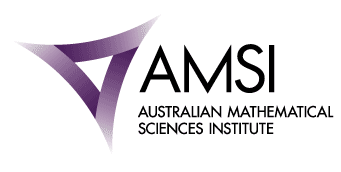Content
Antiderivatives of exponential and logarithmic functions
We've seen various derivatives so far, including
\[ \dfrac{d}{dx}\, e^x = e^x \qquad \text{and, more generally,} \qquad \dfrac{d}{dx}\, e^{kx} = k \, e^{kx}, \] where \(k\) is any non-zero real constant. Also, we've seen \[ \dfrac{d}{dx}\, \log_e x = \dfrac{1}{x} \qquad \text{and, more generally,} \qquad \dfrac{d}{dx}\, \log_e(ax+b) = \dfrac{a}{ax+b}, \] for \(ax+b>0\), where \(a,b\) are real constants with \(a \ne 0\). From this we can deduce several antiderivatives.The basic indefinite integrals are
\[ \int e^x \; dx = e^x + c \qquad \text{and} \qquad \int \dfrac{1}{x} \; dx = \log_e x + c \] and, more generally, \[ \int e^{kx} \; dx = \dfrac{1}{k} \, e^{kx} + c \qquad \text{and} \qquad \int \dfrac{1}{ax+b} \; dx = \dfrac{1}{a} \, \log_e(ax+b) + c, \] where \(c\) as usual is a constant of integration.We can use these antiderivatives to evaluate definite integrals.
Example
Find
\[ \int_e^{e^2} \dfrac{1}{x} \; dx. \]Solution
\begin{align*} \int_e^{e^2} \dfrac{1}{x} \; dx &= \bigl[ \log_e x \bigr]_e^{e^2}\\ &= \log_e (e^2) - \log_e e = 2-1 = 1 \end{align*}Exercise 11
Prove that, for any \(x>0\),
\[ \int_1^x \dfrac{1}{t} \; dt = \log_e x. \]Exercise 12
Prove that, for any \(x>0\) and \(n>0\),
\[ \int_{x^n}^{x^{n+1}} \dfrac{1}{t} \; dt = \log_e x. \]Exercise 13
Differentiate \(f(x) = x \log_e x - x\). Hence find the indefinite integral
\[ \int \log_e x \; dx. \]